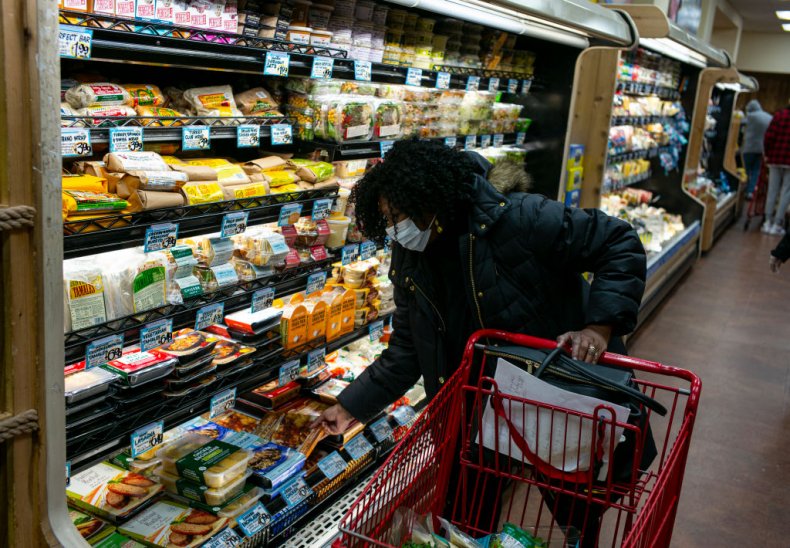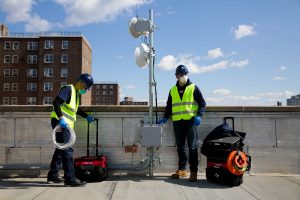In an extraordinary act of kindness, Afghan refugee Nemat Azizi in Bellevue, Nebraska, is helping those who are struggling financially due to the coronavirus pandemic. Azizi has given out hundreds of free grocery vouchers worth $150 each.
It all started with a personal donation of $500 from Azizi, but the Allstate insurance office owner soon realized lots of people in his community needed financial aid. Azizi called on others to help those in the service industry who have found themselves out of work due to the closure of on-site dining at restaurants and other non-essential businesses. Donations came in from businesses and the local community.
“A mortgage company joined hands and donated an additional $500, a nonprofit in town donated another $500 and a local grocery store helped and gave us 15% more for our money that we put together. We were able to put together 12 grocery vouchers each worth $150. Then after announcing it, way more than 12 people reached out for help,” said Azizi on his Facebook Fundraisers page.
Bellevue resident Mikayla Floerchinger lost her job at a local restaurant, but became a beneficiary of Azizi’s good will. “When he offered it to me, I was like ‘I’ve got to take this. It almost, like, fell into my lap,” she told WCVB. Azizi later offered Floerchinger a job at his local Allstate insurance office.
Drawing on his experiences as a refugee, fleeing Afghanistan for India before finding a new life in the U.S., Azizi reflected on past hardship. “Life can be tough at times. I’ve seen it,” he told WCVB. “I’ve seen all parts of it.
“I’ve gotten to know many local families as an Allstate agent in Bellevue,” wrote Azizi on his Allstate Facebook account. “I enjoy being a part of the community, and building local relationships is one of the best parts of my job.”
With more than 40 families on a waitlist for food vouchers in Bellevue, Azizi is asking for donations to the cause to help those in the service industry affected by closures as a result of COVID-19. Donations will be used to buy grocery vouchers in $150 installments. Vouchers will go specifically to servers, restaurant and salon workers who have lost their jobs, so they can get daily essentials and take care of their loved ones.
Nebraska does not currently have an official ‘stay-at-home’ order in place, but many businesses have been affected by restrictions put in place due to the coronavirus pandemic. The state has also closed schools and now limits the size of gatherings.
Newsweek has requested additional comment from Nemat Azizi.
Centers for Disease Control and Prevention Advice on Using Face Coverings to Slow Spread of COVID-19
- CDC recommends wearing a cloth face covering in public where social distancing measures are difficult to maintain.
- A simple cloth face covering can help slow the spread of the virus by those infected and by those who do not exhibit symptoms.
- Cloth face coverings can be fashioned from household items. Guides are offered by the CDC. (https://www.cdc.gov/coronavirus/2019-ncov/prevent-getting-sick/diy-cloth-face-coverings.html)
- Cloth face coverings should be washed regularly. A washing machine will suffice.
- Practice safe removal of face coverings by not touching eyes, nose, and mouth, and wash hands immediately after removing the covering.
World Health Organization advice for avoiding spread of coronavirus disease (COVID-19)
Hygiene advice
- Clean hands frequently with soap and water, or alcohol-based hand rub.
- Wash hands after coughing or sneezing; when caring for the sick; before, during and after food preparation; before eating; after using the toilet; when hands are visibly dirty; and after handling animals or waste.
- Maintain at least 1 meter (3 feet) distance from anyone who is coughing or sneezing.
- Avoid touching your hands, nose and mouth. Do not spit in public.
- Cover your mouth and nose with a tissue or bent elbow when coughing or sneezing. Discard the tissue immediately and clean your hands.
Medical advice
- Avoid close contact with others if you have any symptoms.
- Stay at home if you feel unwell, even with mild symptoms such as headache and runny nose, to avoid potential spread of the disease to medical facilities and other people.
- If you develop serious symptoms (fever, cough, difficulty breathing) seek medical care early and contact local health authorities in advance.
- Note any recent contact with others and travel details to provide to authorities who can trace and prevent spread of the disease.
- Stay up to date on COVID-19 developments issued by health authorities and follow their guidance.
Mask and glove usage
- Healthy individuals only need to wear a mask if taking care of a sick person.
- Wear a mask if you are coughing or sneezing.
- Masks are effective when used in combination with frequent hand cleaning.
- Do not touch the mask while wearing it. Clean hands if you touch the mask.
- Learn how to properly put on, remove and dispose of masks. Clean hands after disposing of the mask.
- Do not reuse single-use masks.
- Regularly washing bare hands is more effective against catching COVID-19 than wearing rubber gloves.
- The COVID-19 virus can still be picked up on rubber gloves and transmitted by touching your face.



















